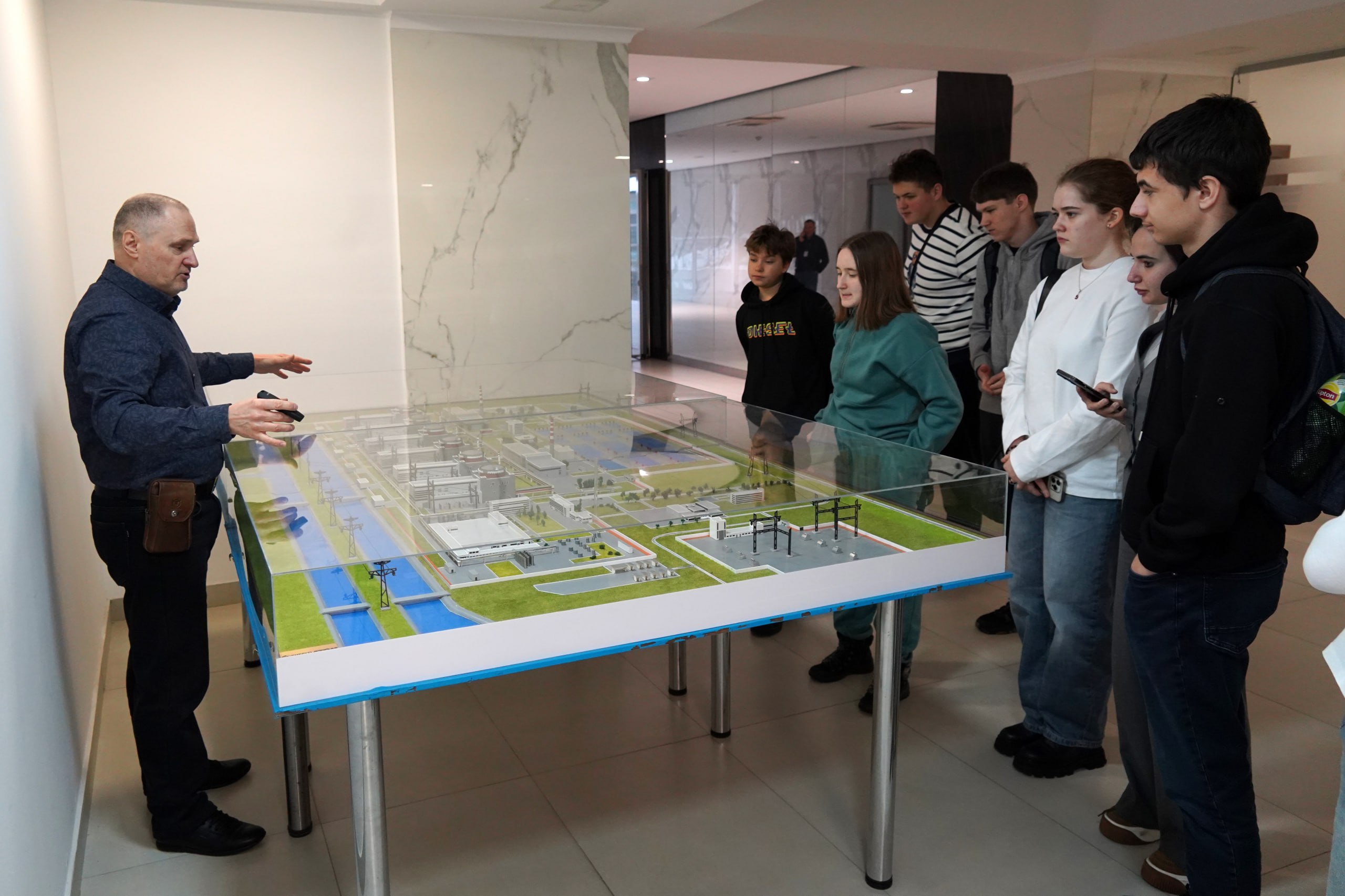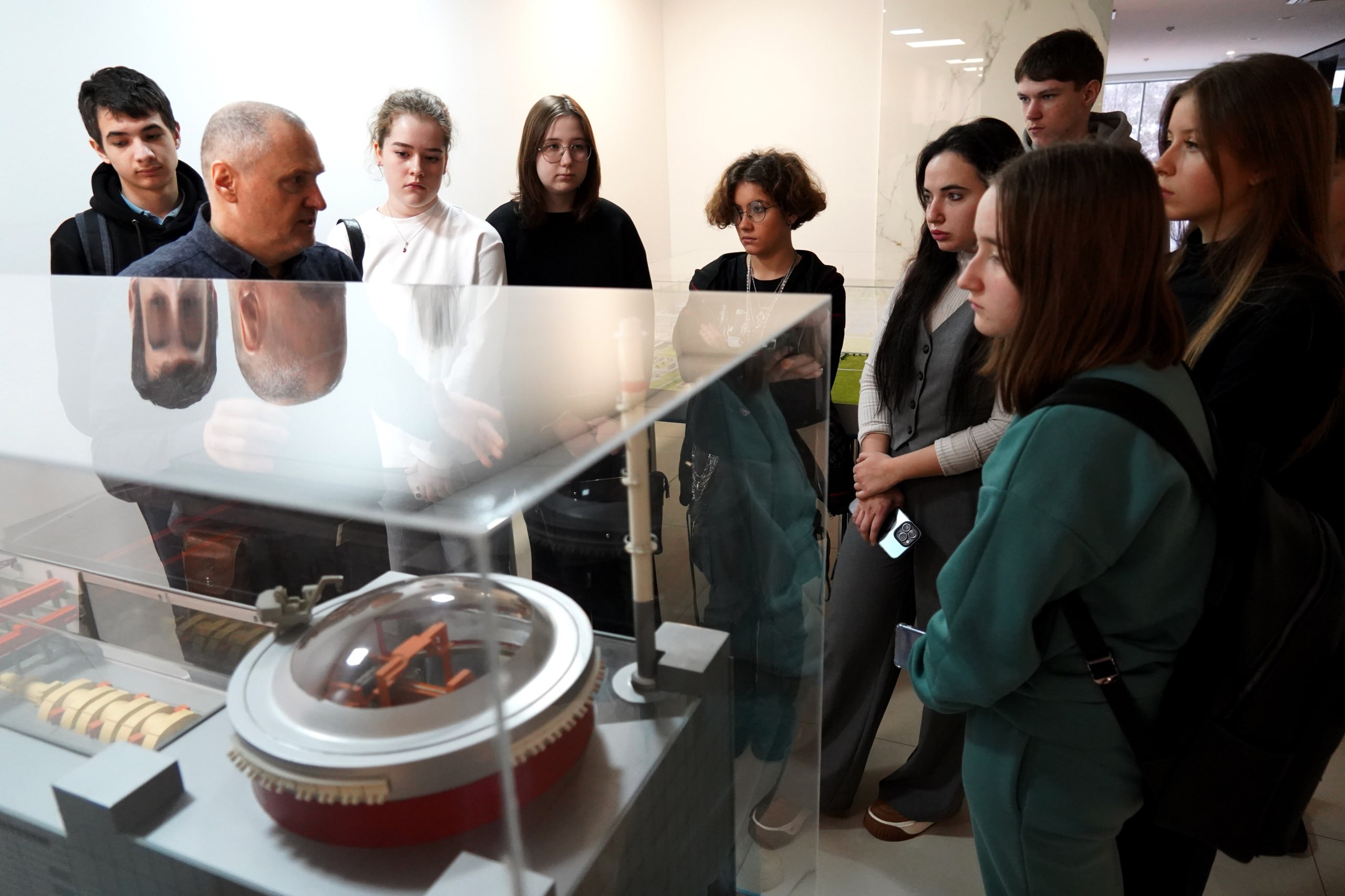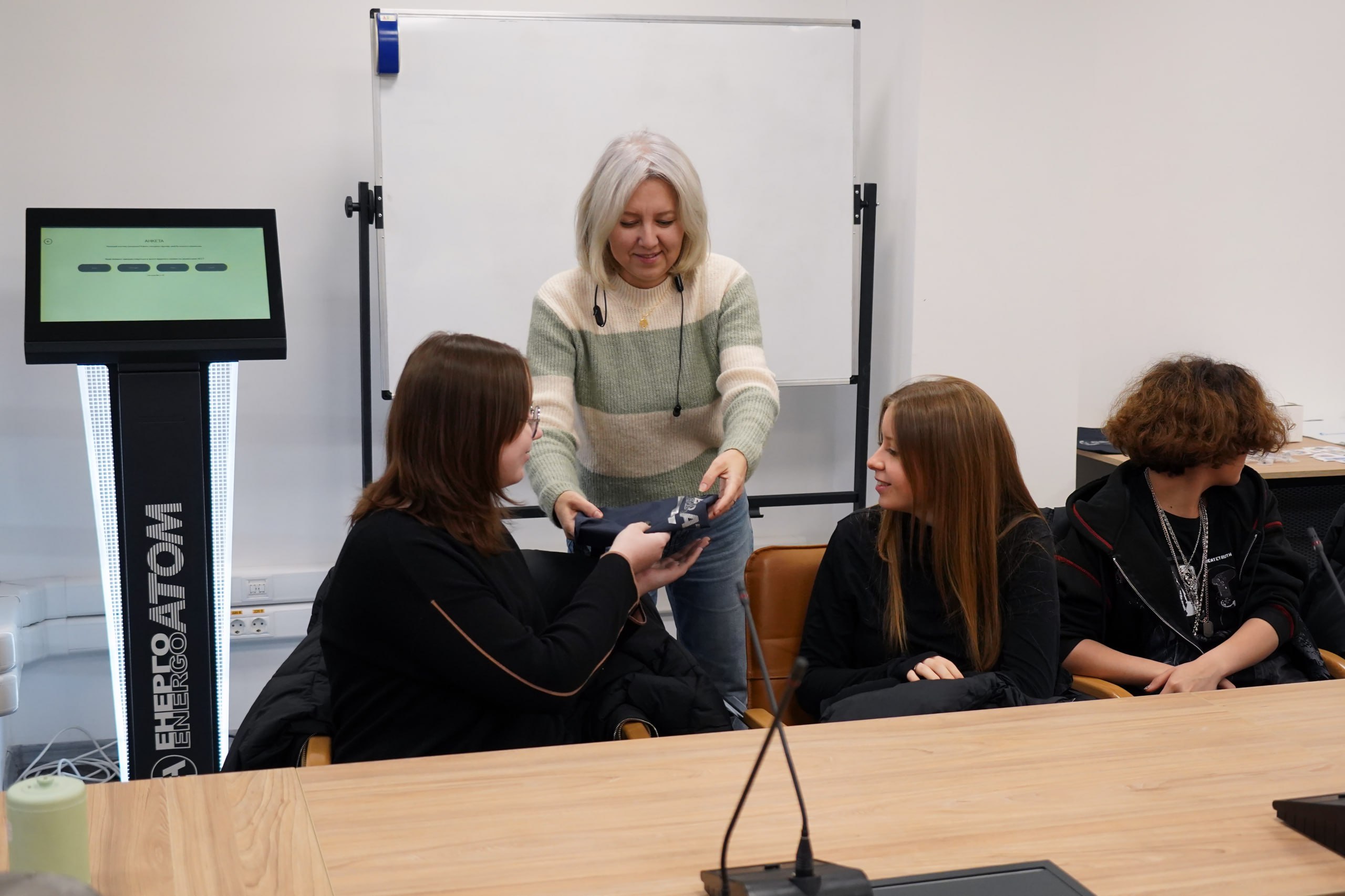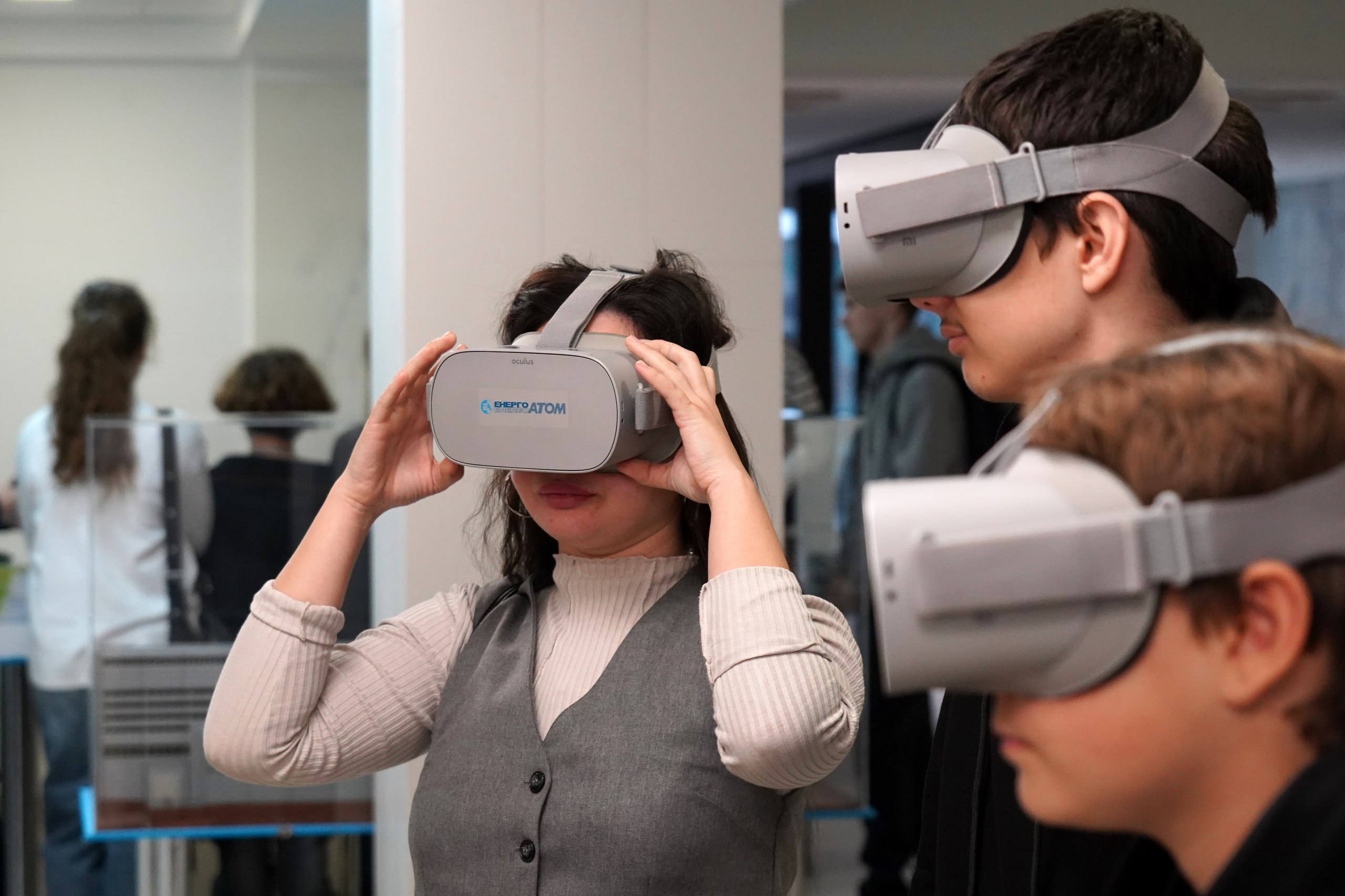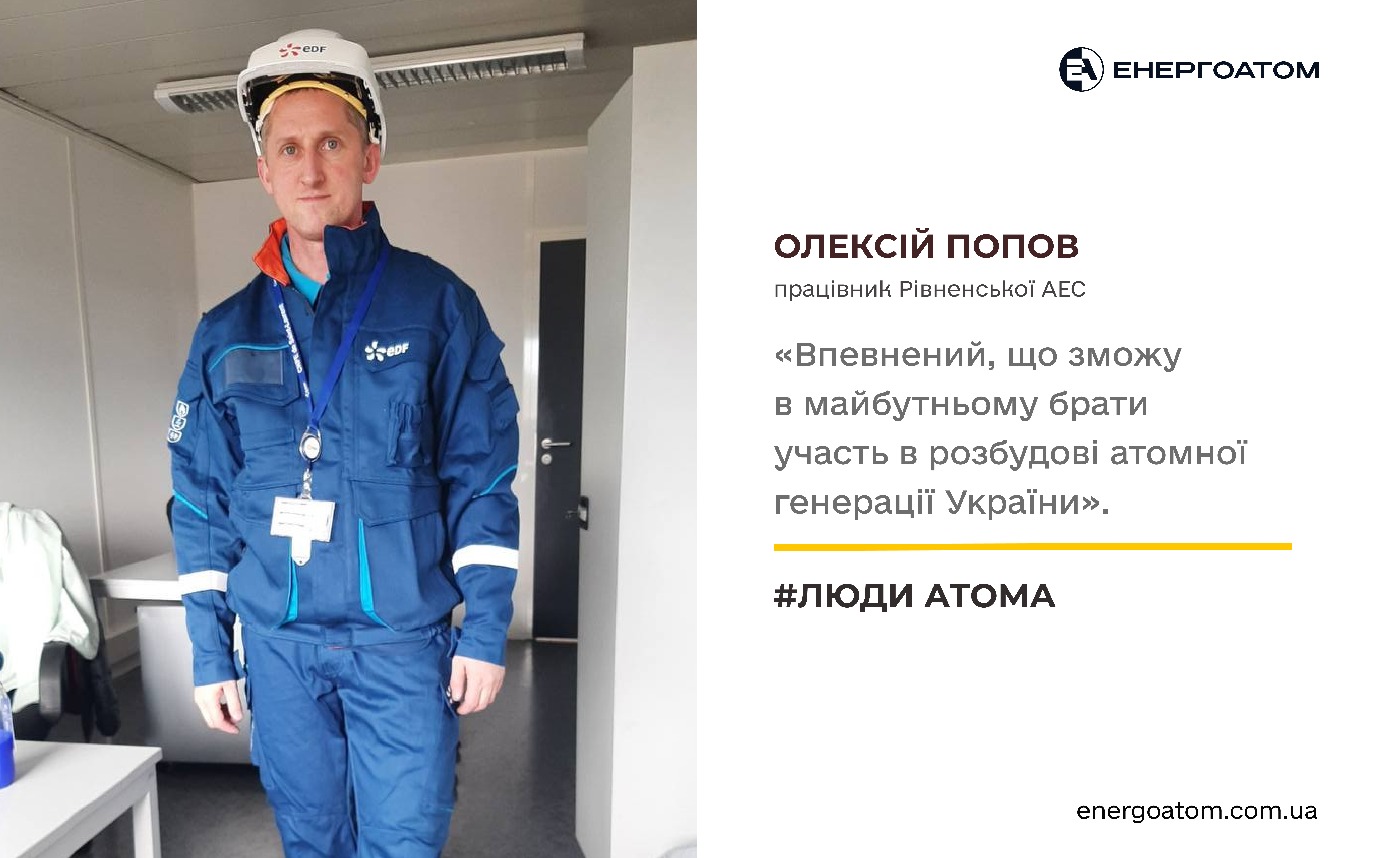
Energoatom is a member of the Paris Centre of the World Association of Nuclear Operators (WANO). As part of cooperation with the Association, six experienced technical specialists from Ukrainian nuclear power plants were seconded to the Paris Centre by NNEGC under various programs; they received the status of WANO PC secondees.
Our interlocutor is Oleksii Popov, a nuclear specialist with almost 20 years of experience in engineering and management at the Rivne NPP. For the last 10 years, he has held the position of Chief Technologist of RNPP Maintenance Department. Since January 2024, he has been a secondee of the WANO Paris Centre (for 3 years). During this period, he plans to expand his competence by working on relevant international experience, in particular in the field of engineering.
– Oleksii, how did you become a nuclear employee?
– I am from Zviahel, Zhytomyr region. In my childhood, I dreamed of being a military man, like my father and grandfather. Nevertheless, the army was in a certain decline at that time, so I entered the Kyiv Polytechnic Institute. After receiving my education, I chose nuclear power engineering as a promising high-tech industry. At the Rivne NPP, I started as an engineer in In-Service Inspection Department, where my professional development took place. I am grateful to all my colleagues from In-Service Inspection Department!
– Your professional history at the RNPP: 9 years at In-Service Inspection Department and the next 10 years at the position of Chief Technologist of RNPP Maintenance Department. How are these stages connected?
– From the outside, it looks like these are different activities – in-service inspection and maintenance and repair. Therefore, my entire career in nuclear power industry has been engineering work or, as they say in international practice, engineering support, which actually connects these two stages.
At In-Service Inspection Department, I worked a lot “in the field”, primarily in reactor and turbine compartments of power units. There were tasks related to extending the lifetime of RNPP-1, -2 (WWER-440), and other unique types of work. In particular, on the domes of the reactor compartments, where, by the way, the picturesque landscapes of Polissia are opened so brightly from a height of over 40 meters. I was also involved in research and testing of metals, a specific direction is work with documentation. So, over 9 years at In-Service Inspection, I gained significant engineering experience, which I sought to expand as head of Chief Technologist Service of Maintenance Department, immersing myself in diverse tasks related to equipment repairs, modifications, etc. In general, it was productive teamwork. I am sure that the teams of these two divisions are performing the tasks assigned to them at a high level of quality now as well.
– Perhaps, during your work at the RNPP, you had experience of cooperation with WANO and other international organizations, hadn’t you?
– Yes, I was quite active in WANO working meetings and workshops on the topics of leadership, monitoring and coaching, risk management, etc. In some events, I was an expert speaker, in others, I was an experience acquirer. The most significant for me is the work in the WANO project on foreign materials exclusion (FME), where I became the leader of several subgroups, which included experts from the USA, Canada, and other countries.
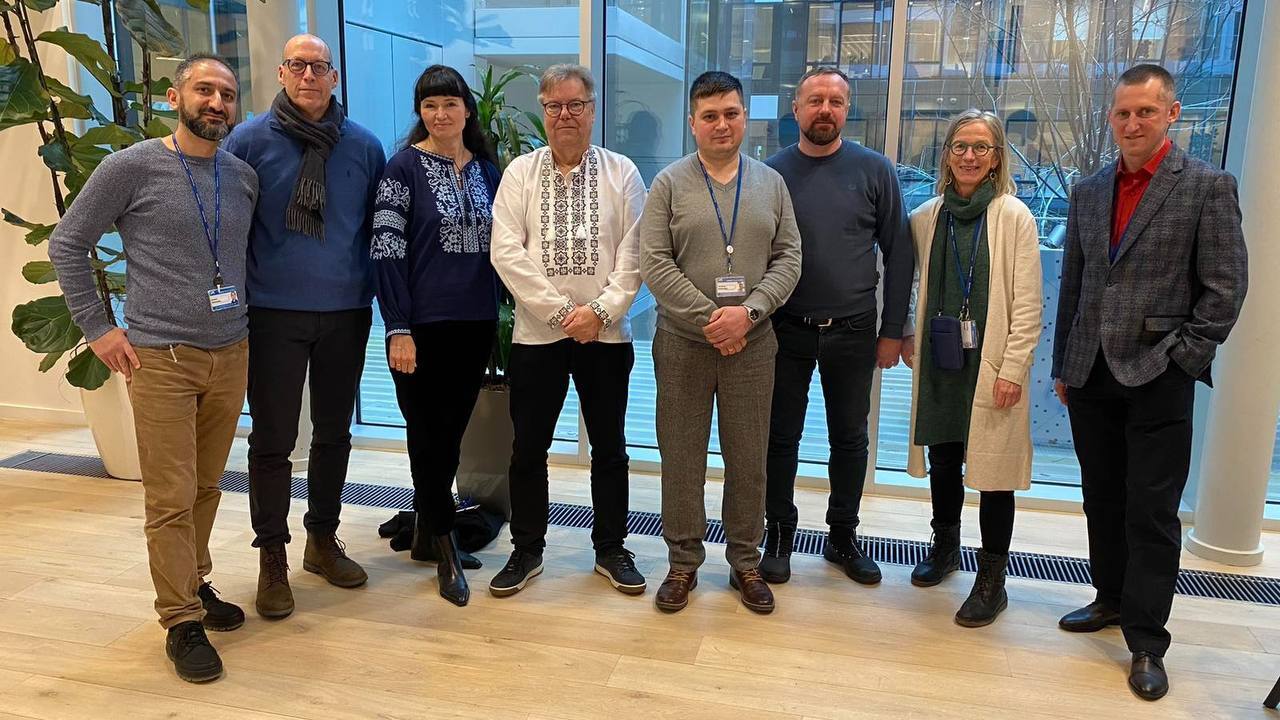
– What interested you about the prospect of joining the team of secondees of the WANO Paris Centre from Energoatom?
– I had long dreamed of working at WANO, because I sought out opportunities for professional development at the international level, I wanted to be more useful to the Ukrainian nuclear power industry. After all, WANO is a source of world experience, and I believe that we should use this powerful resource to improve our work. Therefore, I was motivated to work in a different system, with different approaches, and culture.
– You have already participated in peer reviews at the French Golfech and Belleville NPPs. What was your first experience, what did you see that was new?
– It was an interesting experience. I also work in the engineering department at the Paris Centre (PC), and French nuclear power plants have their own characteristics in this regard. There are no engineering departments directly at the plants; these are combined into one engineering department of the operating organization. Such a system has its pros and cons, but the approach, when all engineering solutions come to the sites from the company, is worthy of attention. Repair management is also located in one Centre. There, this allows for faster dissemination of engineering experience to all nuclear power plants, because French plants are very similar to each other, unlike Ukrainian ones.
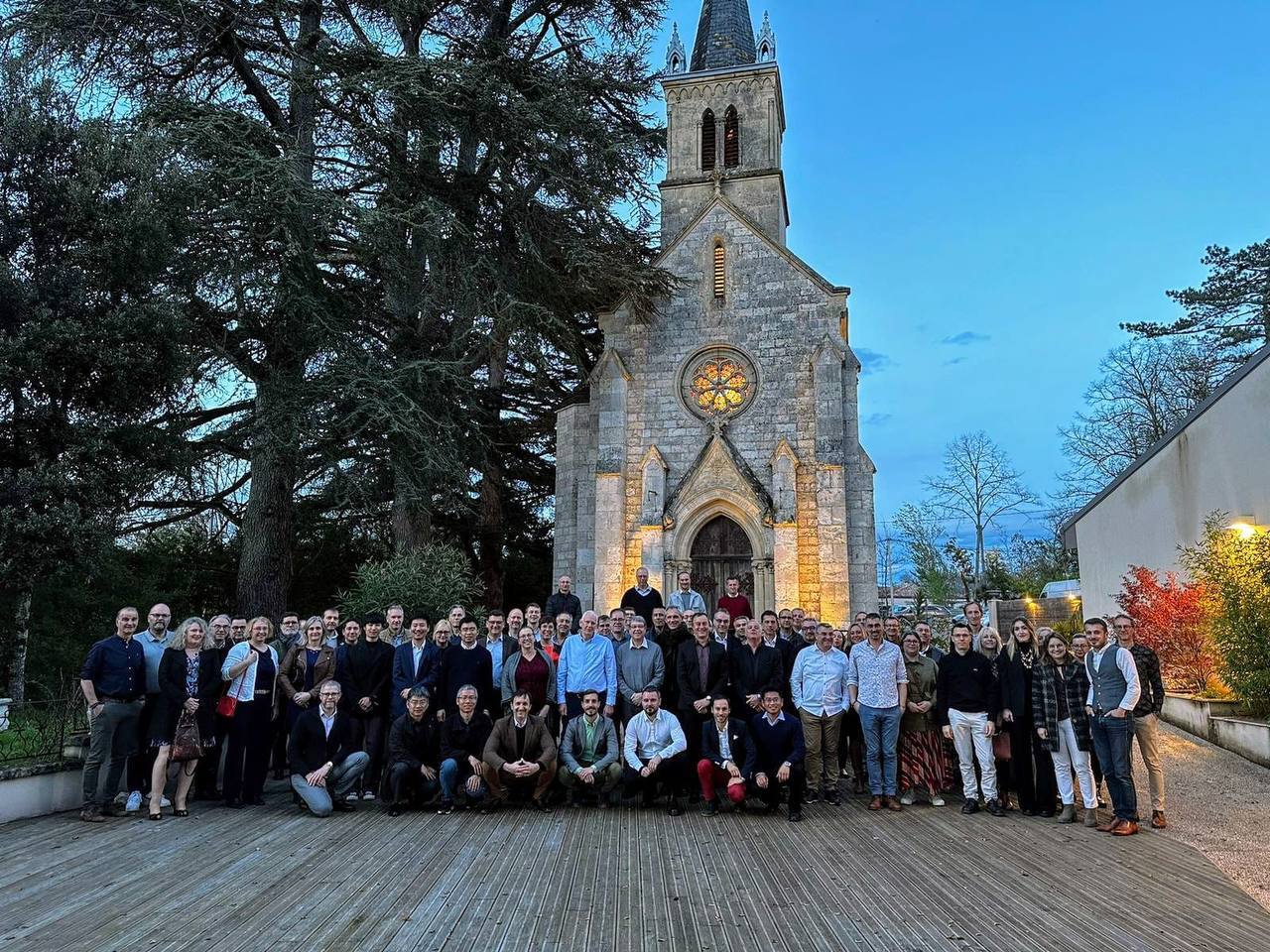
– In addition to peer reviews, what other Paris Centre activities do you participate in as a secondee?
– In June, I participated in a support mission to the operating company of Slovakia on the topic of management of the obsolescence of NPP equipment with WWER reactors. I shared Energoatom's experience and received useful information from my colleagues, in particular, regarding the construction of Unit 3 with WWER-440 at the Mochovce NPP, commissioned in 2023.
Personally, I am more inclined towards WANO support and assistance missions, I believe that they are currently more relevant than peer reviews. After all, the nuclear industry is a highly regulated, with a significant level of internal and independent state supervision. It is worth noting that the PC is currently undergoing a certain transformation, in particular, the “Enhanced Monitoring” (ePM) is being implemented, its concept is to improve the production activities of NPPs through continuous constant communication with PC specialists. If earlier peer inspections at NPPs were carried out once in 4 years, and during this time nuclear engineers independently overcame the areas for improvement identified by experts, then under this program the plants can communicate with WANO every month, every quarter.
– It is known that in the WANO PC you were head of WWER Group. What is the purpose of its establishment?
– Until 2022, when Energoatom, and subsequently other European companies operating WWER reactors, joined the PC, that regional WANO Centre brought together nuclear power plants operating PWR or BWR reactors designed by General Electric, Westinghouse, Framatome. That is, WWER is new for the Paris Centre, although the technology is similar, but certain design solutions are different. Therefore, this year, at the initiative of Energoatom, a group focused specifically on WWER was created to provide additional support to companies with this type of reactor plant. The group includes secondees from Ukraine, Slovakia, the Czech Republic, Finland, and Hungary – specialists who are familiar with WWER. At online meetings, we discuss actual topics in operation and other relevant issues.
– What direction is WANO currently focusing the most attention on?
– The topic of repair is currently in the spotlight of the world, and accordingly for WANO. Especially in the context of extending the life of power units. Therefore, the global nuclear fleet is already outdated, more than 90% of operating power units are beyond their design life. Therefore, the issues of maintenance and repair are extremely relevant and important. Reliable and safe operation requires greater efforts, primarily from maintenance personnel.
– Probably, the experience of Ukrainian nuclear power plants can be in demand, can´t it? After all, our plants have their own maintenance departments.
– Yes, the presence of maintenance departments at our nuclear power plants is one of the important factors in ensuring reliable operation of the equipment. On the other hand, in most countries of the world, maintenance operations at nuclear power plants are performed by contracting organizations, which are difficult to control in terms of personnel qualification. In addition, Energoatom has a strong production infrastructure, in particular enterprises that manufacture equipment and spare parts. This is not practiced in Europe; among all the members of the PC, only Energoatom and the Czech operating organization have their own production. These are our significant advantages, and when we presented such experience to our colleagues, they were impressed. After all, some European nuclear power plants do not have their own maintenance personnel, and there is no question of their own production of certain components.
– Now you also have to constantly learn, as it was at the nuclear power plant, haven’t you?
– Of course, new technologies appear, especially in engineering, new technical, organizational approaches. A big plus is that the Paris Centre provides the opportunity to freely use various technical libraries. I read a lot, study international documents. They are mostly in English, but the main WANO documents are translated into Ukrainian. I try to distribute them among colleagues at the nuclear power plant, in the Company, so that a wider circle of specialists can be acquainted with them.
– How do your colleagues at the PC react to the war in Ukraine, the occupation of the Zaporizhzhia NPP by russian troops, missile attacks on energy facilities?
– In Europe nuclear employees support Ukraine. I see that some colleagues, for example, from Spain, the Netherlands, carefully monitor information about the Zaporizhzhia NPP and our state. They are kept up to date with the latest news, active in social and professional networks, and eager to help us.
– Do they have any idea how difficult the conditions in which Ukrainian nuclear engineers work are?
– Undoubtedly, colleagues in operation, repair, and engineering understand how many risks our power engineers face in wartime. They perceive such work as extremely extreme. At the WANO level, the issue of creating recommendations for the work of nuclear engineers in wartime was discussed. I believe that this should be done urgently.
– At the RNPP, you had time to admire the environment while working on the dome of the power unit. Is there time in your activities for impressions outside of work now?
– But for me, even an ordinary road somewhere, just a trip, is already something interesting. I'm travelling to Paris – the journey itself is fascinating. Wherever I go, I always want to see how people live, work, and what their peculiarities are. For example, in France, during their lunch break, many people go for a run along a certain route, train and after that continue working. Moreover, Chinese colleagues have a tradition of taking a nap during their lunch break, an afternoon nap is part of their work culture, that is why they have 1.5-2 hour break. Of course, not everyone sleeps, some choose the gym or something else.
– Tell us about your hobbies. It is known that you participated in the Berlin Marathon.
– I am a father of many children and a marathon runner, so my primary hobbies are my four children and running. By the way, I have been running for 10 years. I train mostly outdoors, admiring the environment. In total, I have participated in more than 10 different marathons in Ukraine, but I wanted to try my hand at one of the most famous in the world. The Berlin one is the most accessible, but to get into it, I had to apply for three consecutive years. And in 2019, I succeeded! The impressions were extraordinary, 40 thousand runners, fans along the entire route. I covered the distance of 42.195 km in 3 hours 17 minutes. This is my best time so far.
– And what do you want to show your children later, in those countries where you have been?
– First of all, Paris, it is a city that amazes, and Europe in general. Moreover, I want my and all Ukrainian children to be able to travel a lot in the future, to see the world. Because every place has its own peculiarities; even in the work of nuclear employees of different countries, as it turned out, there are its own nuances. Moreover, when you are in Europe for a long time, after returning, you feel your country a little differently. I always want to return home, to my homeland.
– What result do you expect for yourself from 3 years of work as a secondee to the PC?
– First of all, for me this is a new level of professionalism and responsibility. I am sure that in the future I will be able to participate in the development of nuclear generation in Ukraine as a specialist and manager of international level.
– So, do you see your professional future in the nuclear power industry of Ukraine?
– Absolutely. I have invested 19 years of my work in the Ukrainian nuclear power industry, so I see myself here. Our important advantage is that we have significant operating experience and a team of highly qualified specialists. I am convinced that we have many new achievements ahead of us.
